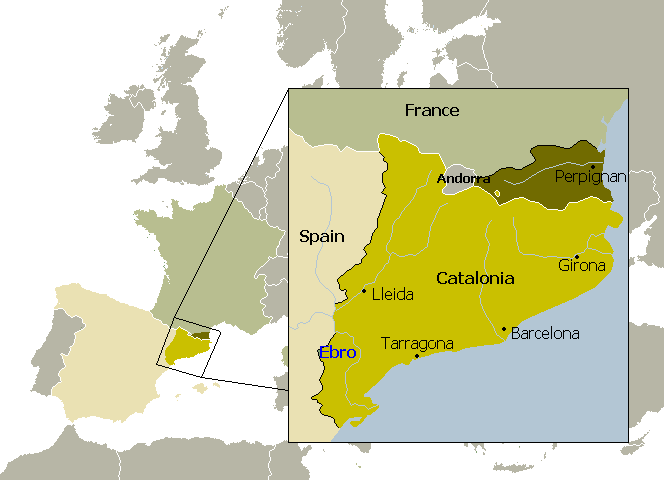

Moving to or travelling in a country when unfamiliar with the language can present a lot of problems to the unprepared. Even if you’re only planning on staying in the country for a few weeks, gaining a cursory grasp of the language can help you get the most out of your trip; It will allow you to experience more than just the tourist attractions, and will leave you with a deeper appreciation not just of your holiday, but of your holiday’s location and the people that live there. Just remember to do your research before embarking on your journey to make sure that your preparation time is being spent well. If you are planning a trip to Barcelona and its surrounding areas there are few things that you should keep in mind.
To start with Spain is more than just a single country, it is made up of several regions each with their own dialects and in some cases entire languages. The Basque region to the north speaks a language that has roots almost entirely apart from typical Castellano (Castellano is the dialect of Spanish spoken in Spain, as opposed to Hispo-American Spanish from South America), and the principal language in the Catalonian region to the north-east of which Barcelona is the capital is Catalan.
While planning a holiday or move to Barcelona, you’ll need to decide if you want to learn Catalan or Castellano to use during your stay. Both languages will seem indistinguishable to the uninitiated, however Catalan developed apart from modern Castellano and shares a lot of characteristics of French and Andorran, and it is these characteristics that will help differentiate the two. Thankfully, people in Catalonia speak Castellano as well as Catalan and most of the signs and menus are in both languages as well, so either language will put you in good stead. With Barcelona being such a popular tourist location most of the bars and restaurants are English friendly as well, but having a smattering of Spanish or Catalan will definitely assist in day to day life when you’re out of the tourism-driven areas.
Learning another language from scratch is never easy, however both Catalan and Spanish are both fairly approachable from an English-speaking background. Many of the words that we use in English come from the same roots in common Latin, and you’ll recognise this the more you read and to a lesser extent read. Words that end in ‘tion’ will be the same except for ‘cion’ in Spanish and ‘cio’ in Catalan, and words that end in either ‘ible’ or ‘able’ are essentially identical in both languages apart from pronunciation. There are lots of other similarities that you’ll notice the more you learn that will assist you in picking up either language quite rapidly, but don’t let that mislead you to thinking that the language is simple. If you do decide to commit to learning, you’ll find it’s easy to lose motivation when you realise just how little you can express yourself and how little you understand at the start. Once you’ve learned enough to be able to express basic needs and wants, you’ll get frustrated with the limited scope of expression you have.
There are literally hundreds of learning aids, the best advice is to find something that works for your time frame and learning style – if you’re only in town for the weekend learn how to ask where the bathroom is and if you can pay with a Visa and you’ll be fine. If you’re staying for a few months, try signing up for a MeetUp group for conversations with native speakers and study daily and you’ll find yourself holding entire conversations in no time at all.
Barcelona’s Mediterranean climate, with increasingly warmer and longer summers, makes air conditioning an essential feature…
Maybe you're thinking about selling a property or you've just inherited one or more real…
Do you enjoy strolling among trees and plants, away from the hustle and bustle of…
If you are planning to move to Barcelona for a few months or permanently, one…
ShBarcelona establishes itself as the leading agency within the Apialia Eixample Group, reaffirming its position…
Are you going to visit Barcelona this 2025? The vibrant Catalan capital once again becomes…